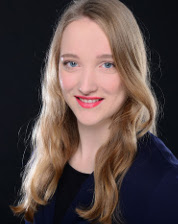Research Abstract
Many societies want to achieve an energy production without any fossil fuels. However, we are not yet able to incorporate all the potential of renewable energies and thus still heavily rely on conventional energy producers.
There are two ways to optimise energy production. On the one hand, we can tune the production schedule to follow demand better. On the other hand, we can change the consumption behaviour to support an optimal supply strategy. Traditionally, demand forecasts are the basis for production schedules. However, with an increasing and changing amount of variables influencing the system, perfect predictions seem unrealistic. This thesis considers a flexible demand side as an opportunity to optimise power production for an energy grid.
Publications
Barth, L.; Hagenmeyer, V.; Ludwig, N.; Wagner, D.
2018. 9th ACM International Conference on Future Energy Systems (ACM e-Energy), 12th - 15th June 2018, Karlsruhe, Germany, ACM, New York
González Ordiano, J. Á.; Bartschat, A.; Ludwig, N.; Braun, E.; Waczowicz, S.; Renkamp, N.; Peter, N.; Düpmeier, C.; Mikut, R.; Hagenmeyer, V.
2018. Journal of Big Data, 5 (1), Art.Nr. 11. doi:10.1186/s40537-018-0119-6
Ludwig, N.; Waczowicz, S.; Mikut, R.; Hagenmeyer, V.
2017. Proceedings. 27. Workshop Computational Intelligence, Dortmund, 23. - 24. November 2017. Hrsg.: F. Hoffmann, 13-32, KIT Scientific Publishing, Karlsruhe
Barth, L.; Ludwig, N.; Mengelkamp, E.; Staudt, P.
2018. Computer science - research and development, 33 (1-2), 13-23. doi:10.1007/s00450-017-0343-x
Jakob, W.; Gonzalez-Ordiano, J. Á.; Ludwig, N.; Mikut, R.; Hagenmeyer, V.
2017. GECCO '17 : Proceedings of the Genetic and Evolutionary Computation Conference Companion, Berlin, Germany, 15th - 19th July 2017, 1271-1278, Association for Computing Machinery, New York (NY). doi:10.1145/3067695.3082481
Mikut, R.; Renkamp, N.; Gonzalez Ordiano, J. A.; Ludwig, N.; Schlagel, T.; Waczowicz, S.; Hagenmeyer, V.; Rink, M.; Iser, A.; Hitzel, J.
2016. Umwelt - Energie - Stadt : 4.Workshop der Stadt Karlsruhe mit den KIT-Zentren 'Klima und Umwelt' sowie 'Energie', Karlsruhe, 29.November 2016
Ludwig, N.; Feuerriegel, S.; Neumann, D.
2016). In Volker Nissen, Dirk Stelzer, Steffen Straßburger, and Daniel Fischer, editors, Multikonferenz Wirtschaftsinformatik (MKWI) 2016, volume III, pages 1569--1580. Universitätsverlag Ilmenau, Ilmenau, 2016.
Putting Big Data analytics to work: Feature selection for forecasting electricity prices using the LASSO and random forests.
Ludwig, N.; Feuerriegel, S.; Neumann, D.
2015. Journal of Decision Systems, 24(1):19--36, 2015. [DOI ]

